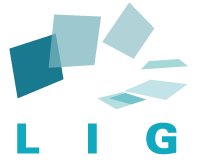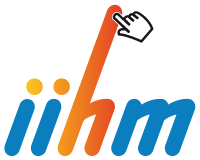Learning Home
ANR contract, oct. 2021 - sept. 2025
Cooperative and active learning for the responsible improvement of energy practices in the residential sector
Although the progress in the efficiency of residential buildings, the consumption does not decrease as expected. Solution for involving inhabitants in sobriety and flexibility have already been proposed but they rely on site knowledge models. However each site is unique because of its architecture, equipment and sensors but also because of its occupants. The site models are mostly not available. LearningHome aims at developing cooperative and interactive learning for home inhabitants to confront to an Interactive Home Energy Management Aid System (IHEMAS) to yield knowledge about occupant activities and costs/comforts preferred compromise. LearningHome extends the promising concepts opened up by the ANR INVOLVED project regarding interactions by developing cooperative solutions to learn a global human-system learnt representation. The aim is to identify the practices as well as the activities of the occupants by reconciling the perceptions of the IHEMAS and its more or less numerous sensors with the perceptions of the inhabitants. These perceptions will be translated into activity labels, intentions and preferences, taking into account the volatility of the inhabitants' memory and
limited consent to interact with an IHEMAS. It induces learning methods with ad hoc notifications but also mechanisms for matching the inhabitants and IHEMAS perceptions.
It might be discrepancies between the IHEMAS and inhabitants perceptions because of a little number of sensors or because of a too high complexity in the inhabitant perceptions. These confusions must be resolved by automatically adapting for instance the generated features. Combining sensor data with labels from occupants yield a model thanks to learning algorithms. Interactive learning is a complementary method to discover the energy behavior of a site. Contrary to the INVOLVED approach, explanations and advice are generated without an a priori physical model, but by exploiting similar encountered situations. The aim is to conceive an exploratory approach guiding the inhabitants in the discovery of the effects of actions in similar situations. Inhabitants will thus be put in situation of experimenters of their environment and the IHEMAS will have the role of recording the experiments and guiding inhabitants towards new exploratory. It will engage inhabitants of residential buildings towards sober energy management through user interaction and that helps them to maintain their behavior change over time. According to J. Grudin, the future of Human Computer Interaction (HCI) are smart digital partners. Thus, the goal is to investigate mixed initiative through symmetrical co- learning interactions: both parties will inform, explain, ask, suggest and learn from the other. It is a new paradigm for IIHS, which fits well the unicity of each home where knowledge raises up from confrontation of parties. Our hypothesis is that co-learning will leverage user engagement as it puts users back in the decision loop by letting them to control the system boundaries.
LearningHome will experiment different approaches to involve occupants to be more sober and more flexible in collective residential buildings. Different behavioral levers are going to be tested. One challenge is about measuring the impact of each lever: while it is relatively easy to measure a lever impact on energy consumption, it is difficult to assess an impact on energy used for heating. The assessments of the results follow two complementary approaches: an energy performance verification protocol for measuring over a few weeks the energy impacts of levers by measuring then for extrapolating them to a year by propagating uncertainties, and the analysis of household behavior regarding energy usage.
Contact
Yann Laurillau, Gaëlle Calvary
Partners
6 Partners coordinated by Grenoble-INP/G-SCOP: Univ. Grenoble-Alpes/LIG/IIHM, Univ. Grenoble-Alpes/LIG/Aptikal, Univ. Grenoble-Alpes/GAEL, Kocliko company, University of Bordeaux/I2M

